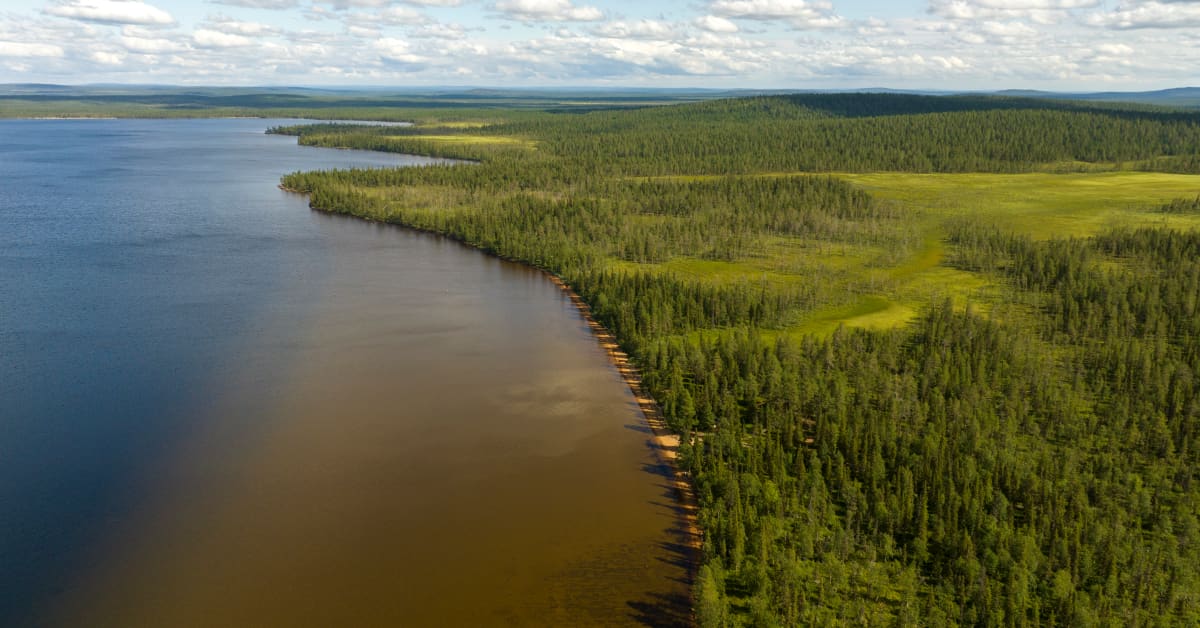Hikers visiting the Pallas-Yllästunturi National Park may notice that the area has hardly any rubbish bins. The move is part of an effort to promote litter-free hiking, according to Metsähallitus Outdoor Recreation and Visitor Manager Pekka Sulkava.
Park management removed the bins previously located in rest areas as well as shelters and lodges along the Pallas-Hetta route last winter. The goal is for all bins to be removed by next year.
According to Sulkava, the practice of hiking without leaving litter behind is steadily gaining popularity in Finland.
“Nature centres have also promoted the idea of litter-free hiking and sold plastic bags for carrying litter so that they don’t get scattered in people’s rucksacks. People have been buying the bags and at the moment it seems that the amount of rubbish at the park’s break areas has clearly decreased,” Sulkava said, adding that he has noticed a change in hikers’ attitudes towards littering in the past decades.
Finland’s natural resource management firm Metsähallitus says that the move has been welcomed by parkgoers.
“Litter-free hiking has become the norm, that everything brought gets taken away and that nothing is left here,” Tuuli-Anna Tuohimaa a hiker from the city of Pudasjärvi, near Oulu, told Yle.
“And you don’t really see any rubbish along the trails, seems like it has become a given,” co-hiker Jaakko Matero added.
Park rangers have also been installing more informational signs within parks and transitioning from traditional outdoor restrooms to ones that are more cost-effective to purchase and simpler to upkeep. All toilets have also been made unisex, meaning that they are no longer separated by gender.
“The unisex model means that the toilets get used more evenly, which reduces the need for maintenance and costs,” Sulkava noted, adding that “overall, the feedback has really improved this year.”
The number of visits to Finland’s national parks has levelled off from the record set in 2021. Some 595,000 people visited the Pallas-Yllästunturi National Park in 2022, down from nearly 700,000 in 2021.



Feels like: let’s remove hospitals so that less people get injured 🤷🏼♂️
Litter bins in the middle of a forest still have to be emptied by someone. And while they are there, they can be accessed by wildlife.
The correct solution here really is for the same people that bring the trash, to take it back with them, and discard it elsewhere.
If people won’t do that, then yes, the litter bin is the better option, but if they do, removing them is the better option. Especially if they aren’t even being filled anymore.
This is the locigal next step for an already improving hiking culture.
Japan is very similar but not exclusive to parks, even in the middle of Tokyo. Pretty much EVERYWHERE in Japan expects you to carry your own trash.
The only exception to this really being at restaurant’s, street food markets, and “some” vending machines (which will have recycling for cans/plastic).
And you know what? There’s very little trash on the streets. The dirtiest areas I experienced was Osaka near Amerika-mura (young trendy area) which was mostly just stuck gum, cigarette butts, and in the early AM maybe an empty can of beer.
and if people throw their trash on the ground, they themselves should be removed instead. litterers are literal scum of the earth.
You are totally right and I never wanted to imply that people should be able to take trash into the wildlife. I’m just not sure if it’s the best way to just remove the litter bins. Many people that didn’t get the note will throw their trash into nature because of the lack of a trashcan.
If the trash is already there, it’s too late. There should be a way to enforce that in a way were ignoring or not knowing about the rules will not result in an even worse outcome.
But will that kind of person really carry trash until a resting place, or maybe just dispose of it where they open stuff?
I personally always found trash cans in areas not commly frequented by cars rather odd - I got tought in the 80s and 90s that we are careful how we pack things we take with us when hiking, and take everything back.
It is a conecpt a 3 year old can understand (I see that now with my own kids), so you’d expect an adult not to have a hard time with that.
A lot of adults are just assholes, though.
the bins can be designed to prevent wildlife from accessing them. I guess they don’t have any other facilities nearby that would need maintenance as well. So bring your own water and porta potty as well.
deleted by creator
I am not sure how removing the littler bins will help. Sure there are disciplined people trying to abide by laws and such, but the more a place gets popular, the more it attracts trash? It’s an odd choice to remove the means for people to dispose of their litter properly.
Perhaps there’a another angle to this?
I guess it speaks more to how many fins are cleanly by nature when it comes to their travel and camping?
Because, yeah, sure, above a certain critical mass this is good. Less animals plundering bins and so on.
Try that over here, and it’s the opposite. We need more bins so people stop throwing trash everywhere when there’s always a bin within arm’s reach pretty much.
Litter bins attract curious animals
Oooh. Should we just spread them out everywhere so they won’t congregate in the place? (I don’t know if I’m joking or not anymore)
If that is the point of view, then it should be OK, I guess? I mean, hiking is not that as popular a trash-magnet activity compared to crowd attractions like parks. Right?
You don’t understand the Finnish, they love their country and will do everything to protect it, even if it is nonsensical to the west
Now that is a point I can understand. Because where I came from, people just litter left and right even with the bins around. Such a pain.
Including raking your forests to prevent forest fires?
Not in the slightest. It’s not exactly a massive burden to take your rubbish home with you.
It’s not about burden, it’s about the ststistical possibility this happens.
Not stealing a car isn’t s burden either, would you let your car sit on the street unlocked though?
Good laws/rules should avoid problems instead of hoping everyone would follow them, which never happens anyway.
That’s why you don’t just outlaw hateful speech and hope for the best but try to instill in young people why hateful speech is bad.
You need a solution that scales and isn’t depending on good will is all I’m trying to bring across 🤷🏼♂️
Good culture is not needing to legislate against stupid behaviour. I’ve been to beaches in Europe which are very clean and beaches in Turkey which are full of litter. Both have rubbish bins which are collected regularly. It’s all down to local culture.
I can’t speak for Finland, but I think Sweden has a similar culture and the “leave no trace” motto is strong here since nature is considered a communal resource.
I have never seen bins even on major trails here, but I have never seen anything but miniscule amounts of litter either.
If there is no need to pay for the upkeep of bins, why not put those resources to better use like conservation of the park?
I mean just take your shit with you. That way no animal will even be able to eat it.
The national parks in the US use bear-proof trash cans for that purpose.
Beer proof means stupid people proof as well…